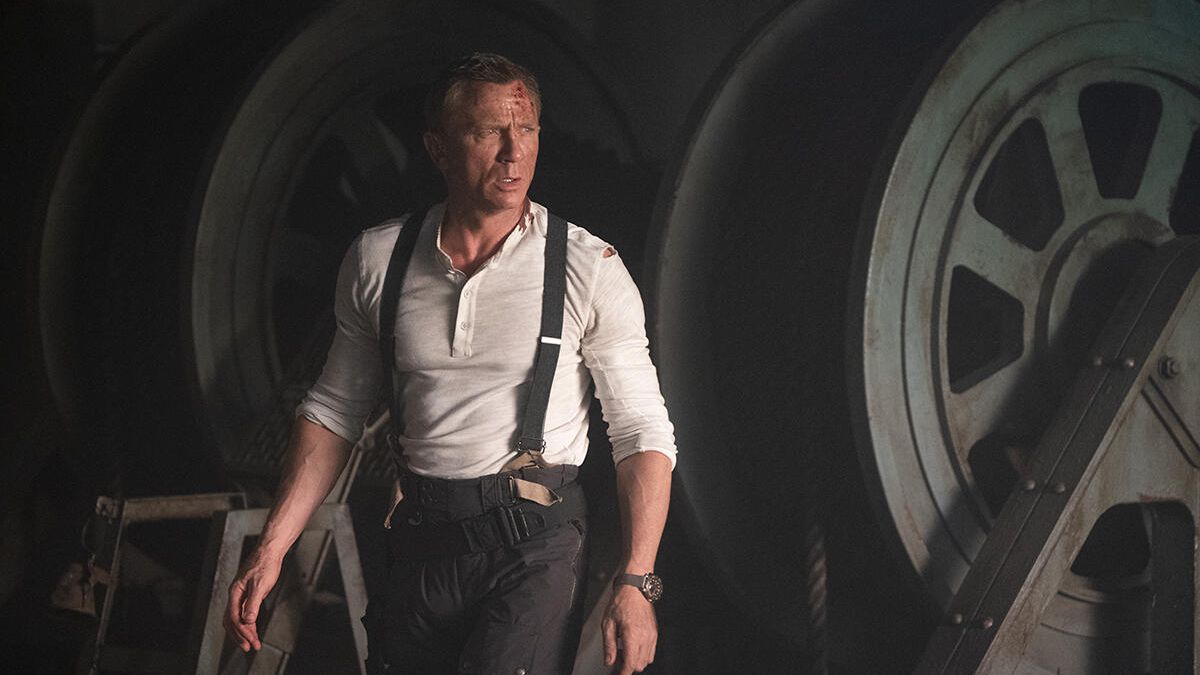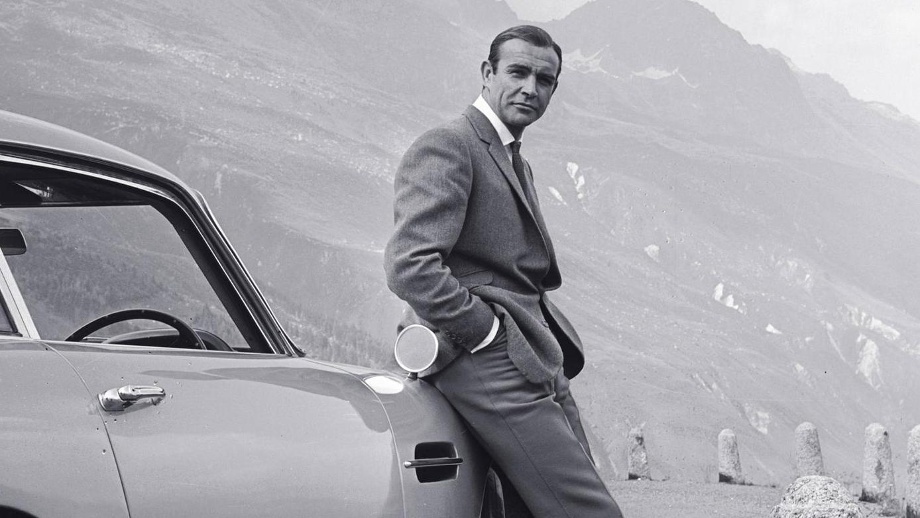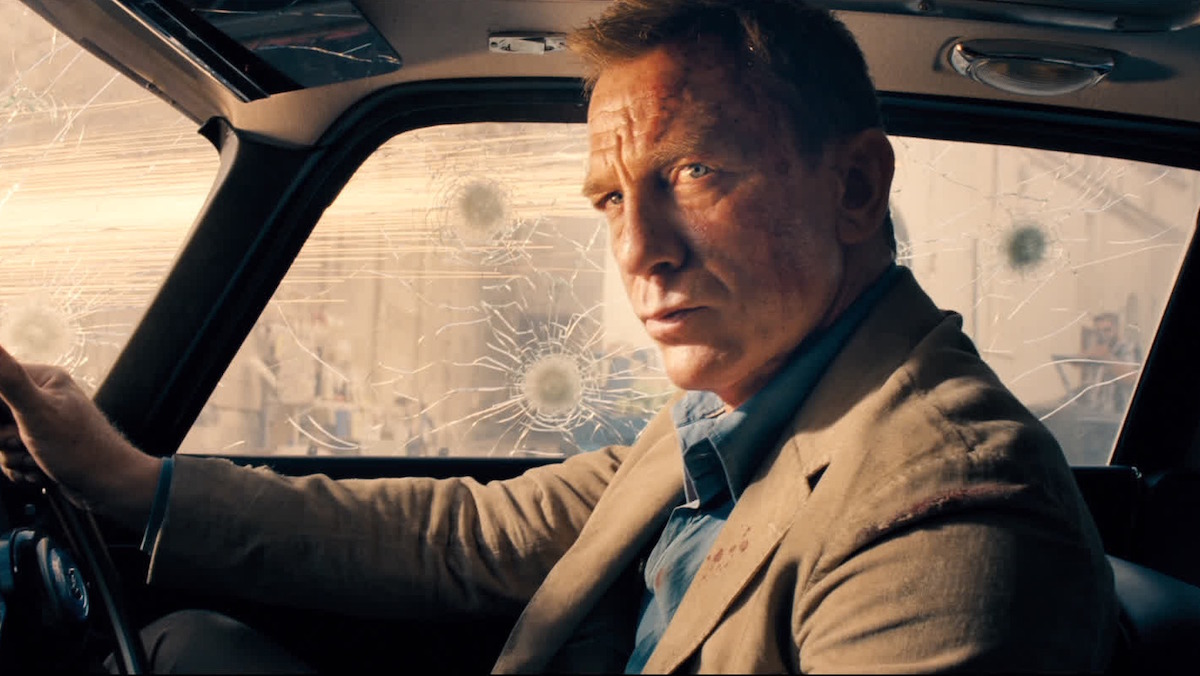“You don’t like me, Bond. You don’t like my methods. You think I’m an accountant, a bean counter more interested in my numbers than your instincts.”

“The thought had occurred to me.”
“Good, because I think you’re a sexist, misogynist dinosaur. A relic of the Cold War, whose boyish charms, though wasted on me, obviously appealed to that young woman I sent out to evaluate you.”
“Point taken.”
This moment is key in the Bond franchise for several reasons. Having been referenced before – in fairly unflattering terms – we have our first introduction to Judi Dench’s M. She radiates authority, and in a few lines of dialogue manages to completely emasculate someone who to that point had been the ideal male fantasy.
Since the 1960s, the franchise had coasted on this idea. That Bond’s combination of physical prowess, bravery and sheer charm was enough to face any situation and overcome it with grace and aplomb. Ever since Connery first put on a white tuxedo and confidently lit a cigarette while saying his most famous catchphrase, he has been an icon of popular culture. The suit, the car, the exotic locations, and of course the beautiful women – Bond represented this to a generation of men.
However, as we well know, times change. There are some very cringe-worthy sexual and racial politics present in the Bond mythos, especially present in the Connery and Moore eras of the character. From Connery casually telling a woman to leave because “men are talking” – complete with a cheeky slap on the behind – to the dicey depiction of Haitian culture in Live and Let Die, there are several scenes, plots, and entire films that have not aged well.
But this moment in Goldeneye signalled a move forward for the franchise. In the subsequent Brosnan outings, we were treated to many firsts for the franchise, like Michelle Yeoh’s Wai Lin, a Chinese intelligence officer who’s shown to be just as if not more capable than 007 himself.
Modernising an Icon

Fast forward to 2006, and after the Brosnan era fell into the ludicrous affair that was Die Another Day, the producers of the Bond franchise looked to reinvent the character for the 21st century. Daniel Craig is chosen to fill the tuxedo. Despite being the most physically impressive Bond since Connery, what stands out about Craig’s tenure is his emotional rawness – the films serve as a near deconstruction of the facile mythos built around the character over the years. From falling in love with Vesper, to her betrayal and death, these events are meant to be responsible for making Craig into the hard, uncaring spy we’re familiar with. Instead, the consequences of this approach – which are pointed out during an earlier scene in Casino Royale again by Dench’s M – are not only acknowledged but actively questioned.
This continued to be a defining theme of Craig’s time as Bond. Quantum of Solace was intended as a revenge piece, showcasing Bond’s fury and coldness. While there are certainly moments of this, the character’s vulnerability shows in the bond he forms with Camille Montes, both of them dealing with grief in a similar way. The fact that this relationship was platonic is further proof that the franchise was beginning to treat Bond more like a human being than a symbol.
The deeply personal nature of the storytelling present in these first two films is another motif that would continue through Skyfall and Spectre. Both relate to Bond’s past, something the franchise hadn’t delved into until that point. These two films question what made Bond into the hard-drinking, womanising, near-unfeeling superspy that we’re all too familiar with, as they interrogate both the meaning of his work and the relationships he forms with colleagues (Skyfall) and the nature of his upbringing and its effect on his personality (Spectre).
Where To Now?

No Time to Die is an appropriate and fitting swan song for Craig’s take on the character. After discovering the woman he fell for in Spectre has her own secrets, he attempts to walk away from her, in the style of Bonds of old. However much like the prior films, this coldness is attacked. And when fate inevitably draws the two of them back together, this approach is effectively exposed for what it is – a defense mechanism. One that has become increasingly ineffective as Bond ages and reflects on his life.
And this more than anything else is what makes Craig’s take on the character unique. While Bond was always a larger-than-life fictional character, his five films in the role made him feel like a real human being. Along the way, it reset a lot of the old notions about Bond being an unfeeling, cool as ice lady’s man, because Craig’s emotion is probably the defining aspect of his take on Bond.
Ultimately though, this leaves fans of the franchise with one major question: where can they take the character from here? Craig brought the character firmly into the 21st century, and his take on Bond is iconic. To try and imitate it would do a disservice to both him and the audience. But taking the character back to his problematic roots won’t work either, especially in today’s climate. There’s no easy answer to this question, and Barbara Broccoli certainly has her hands full in planning how to handle the character in the context of a post-Me Too world.
Speculation has been rife over casting the role. Personally, I would like to see a James Bond of colour perhaps. Idris Elba has been suggested, however, his age is a problem. Riz Ahmed has also been suggested, and I for one would love to see this intense, talented actor take on this iconic role and perhaps continue the work in progressing the character.
So, where does James Bond fit into the modern Hollywood landscape? Is there room for a “sexist, misogynist dinosaur” in the multiplexes of today? I think Bond’s iconic status is at this point undeniable, but the challenge facing the producers is how best to capitalise on the momentum built by Craig’s take on the character, and to strike a balance between some of the more appealing aspects of the character from the past with a look towards the future.
No Time to Die is currently playing in cinemas and will be reviewed in full by FIB.







